Sleep Deprivation: The Cure for This Hidden Epidemic
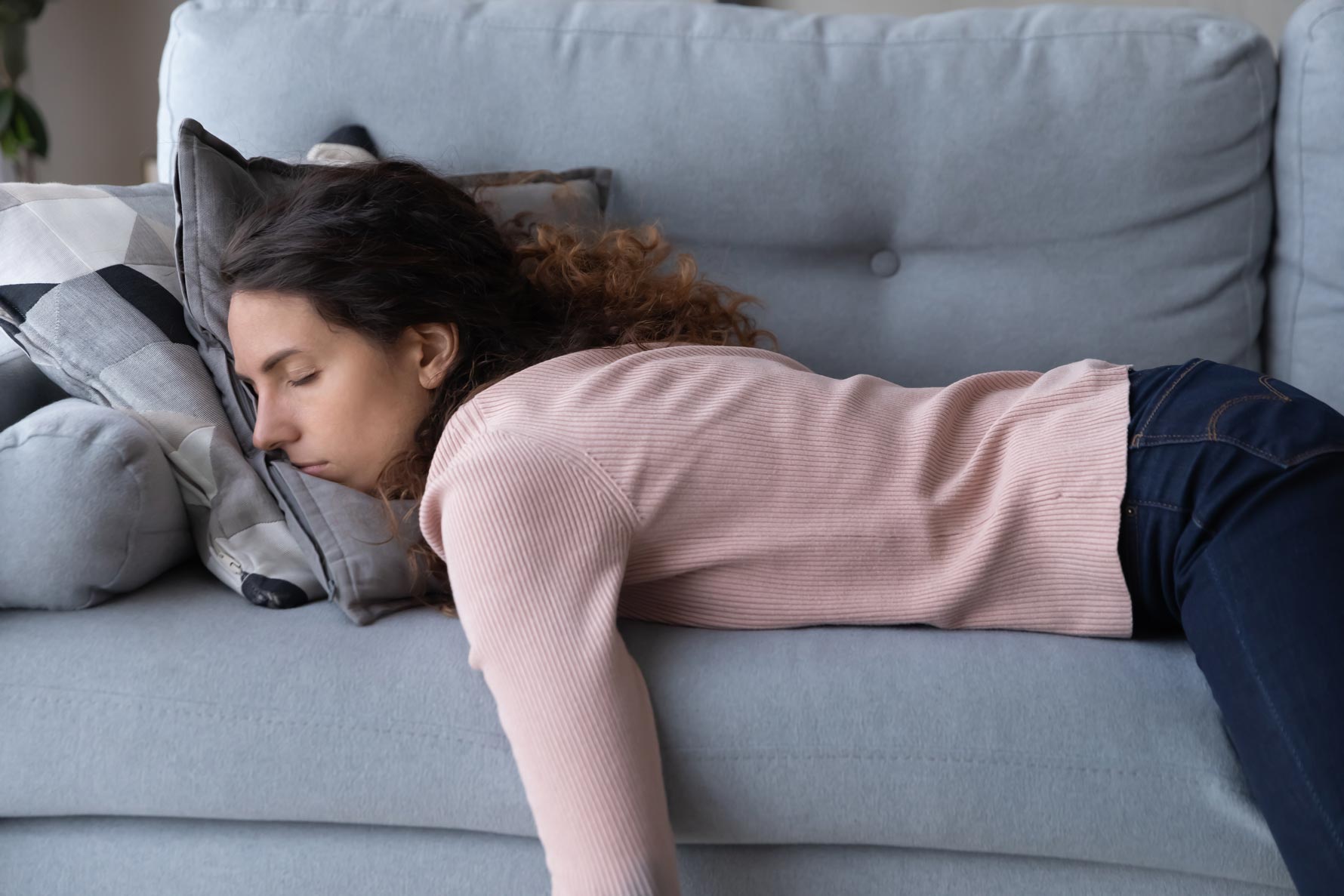
Feeling sleep-deprived … or chronically tired?
You aren’t the only one. It is a hidden epidemic greatly impacting countless people across society. And if you are one of the many who suffer from this issue, you should make an effort to resolve it (because it’s hugely important to your mental, physical, and spiritual health).
Here are some easy steps to diagnose the cause and deliver the cure.
Depending on your age and lifestyle, the causes of sleep disruption, insomnia, and other sleep disturbances can differ enormously.
Complicating matters, the amount of sleep you need to feel alert and refreshed changes across time because your circadian rhythm changes as you age.
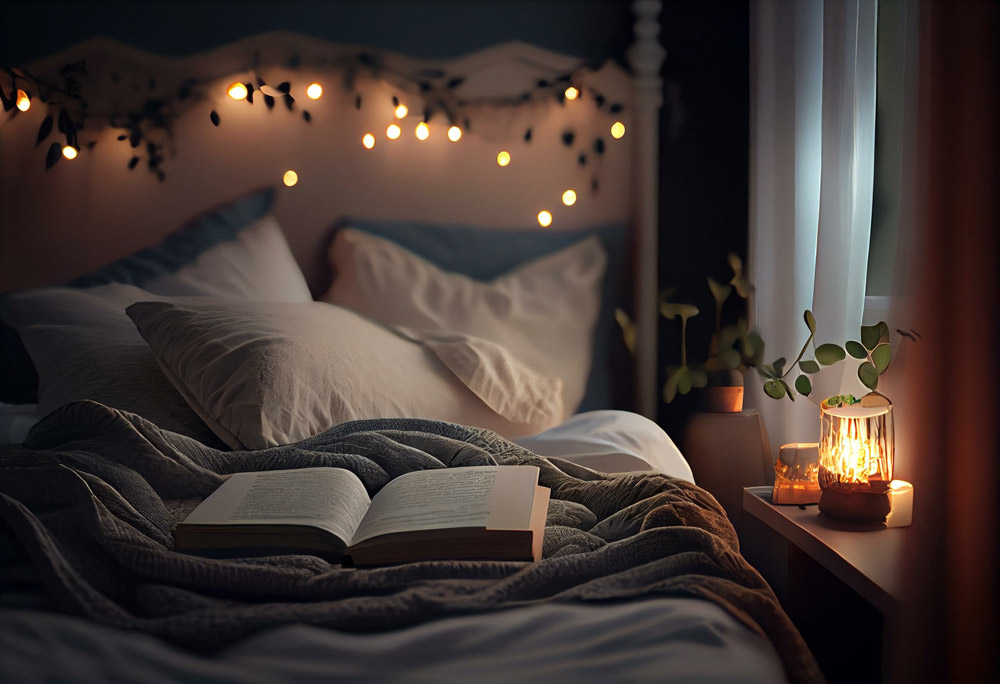
Bedrooms should be strictly designated as intimacy spaces, relaxation stations, altars and meditation spaces, and sleep. Entering the room at least a half hour before bedtime allows time to wind down and relax. Engage in something soothing during these precious 30 minutes: knitting, drawing, reading. And lay off the caffeine entirely after 12p.m. (noon). It can take up to ten hours for caffeine to leave the bloodstream. If you need a quick jolt mid-afternoon, open your freezer door, and get a quick hit of cold air in your face. Seriously! It works!
If you have insomnia and none of the above (or anything I suggest at the end of this piece) helps, talk to your primary care doctor, as there may be a physical cause that can be addressed.
As an adult, you should be getting between seven and nine hours of sleep at night. How much of that seven to nine hours you’ll need is dictated by your lifestyle. A good way to determine your ideal sleep number is to wake up naturally three days in a row without setting any kind of alarm while in a completely dark room or while wearing a sleep mask. Choosing a three-day weekend to do this is ideal. Go to bed at the same time all three nights and awaken naturally every morning. Take an average of the three days to find your ideal number of sleeping hours. Then pay attention to how you feel the following week while you adhere to the total average number of sleep hours that you determined were right for you. If you’re feeling more refreshed and robust, you’ve found your magic number for the stage of life you’re in right now.
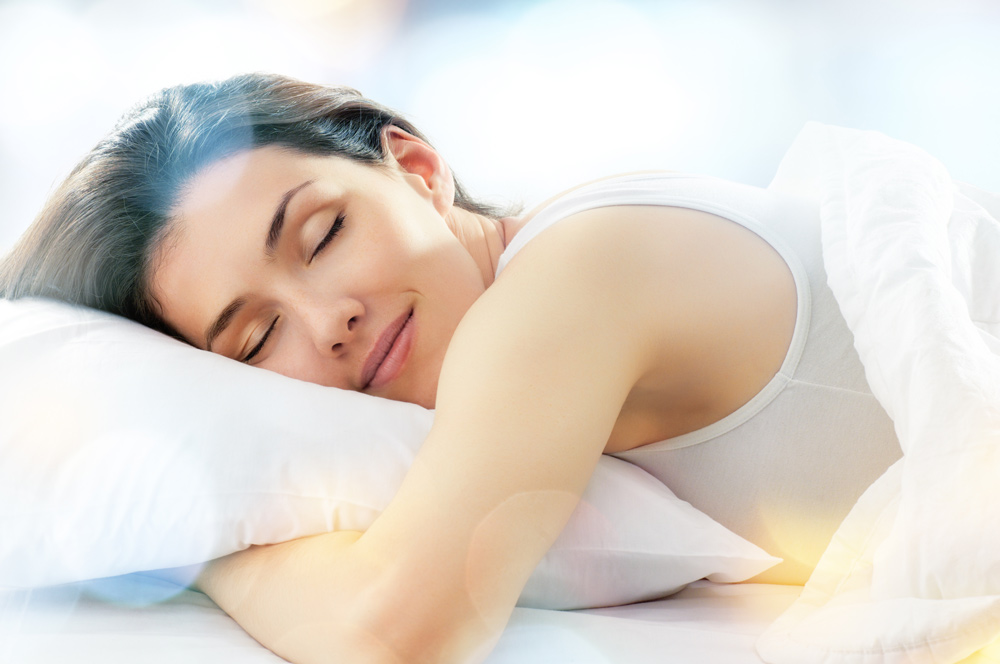
According to sleep experts, what usually keeps adults in this age range from sleeping well is that they have one sleep schedule during work days which they disregard during their days off. Doing so disrupts their internal clock.
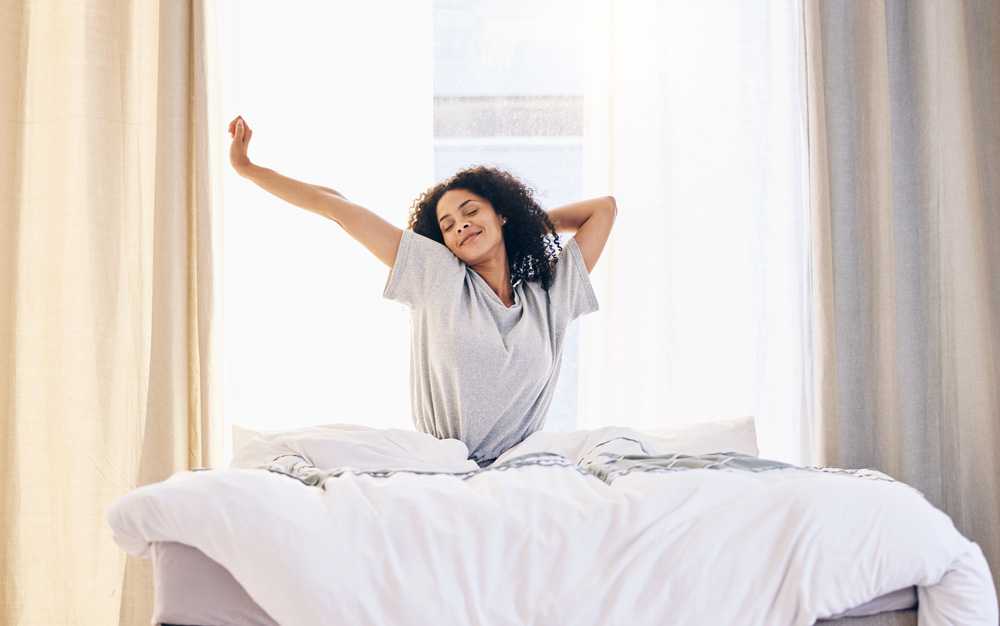
When you’re fully rested, an alarm becomes unnecessary. You automatically wake up when you’ve had the right amount of sleep. If you find yourself waking up two hours later on your days off than you do on work days, you are chronically sleep-deprived and should make changes to rectify your sleep deficit. Do this by adjusting your bedtime so you’re going to bed and getting up at about the same time every day. On your days off, reward yourself by spending the earliest waking hours doing something you massively enjoy, whether that’s taking a walk, meeting a friend for breakfast, or something else relaxing and fun.
If you’re an adult experiencing chronic insomnia and none of the suggestions in this piece help, it’s time to let your energy medicine practitioner know, so she can help you out.
Additional detriments to getting a good night’s sleep for people this age may be alcohol, caffeine or work, a health or relationship challenge, or other stresses.
Although alcohol may help you fall asleep fast, the sleep you’ll get may well become fragmented and you will probably find yourself traipsing to the bathroom multiple times during the night, adding to your sleep deficit. And the older you get, the more pronounced are the effects of consuming alcohol. So, not a good solution (for much of anything)!
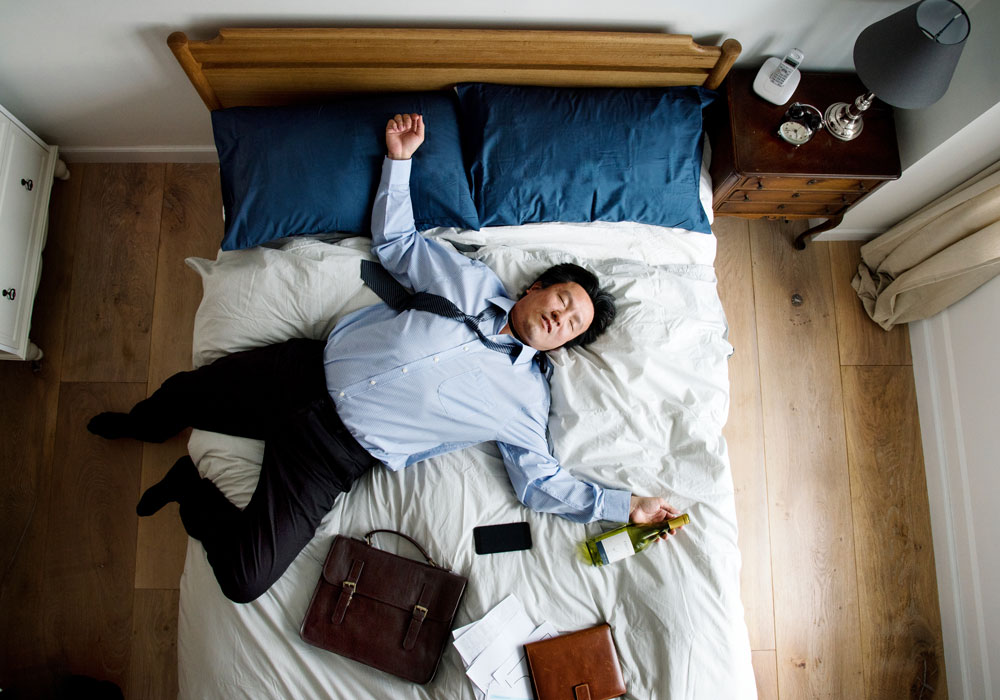
If worries are the culprit, carve out time to address your stress. Set a timer for a few minutes and write about what’s worrying you. That is usually all it takes to signal to your brain that you’re working proactively on the issue, so it won’t feel compelled to do so when you get quiet at night and want to fall asleep.
And my earlier suggestion about disengaging from all devices and manmade light sources a half hour before bed is helpful.
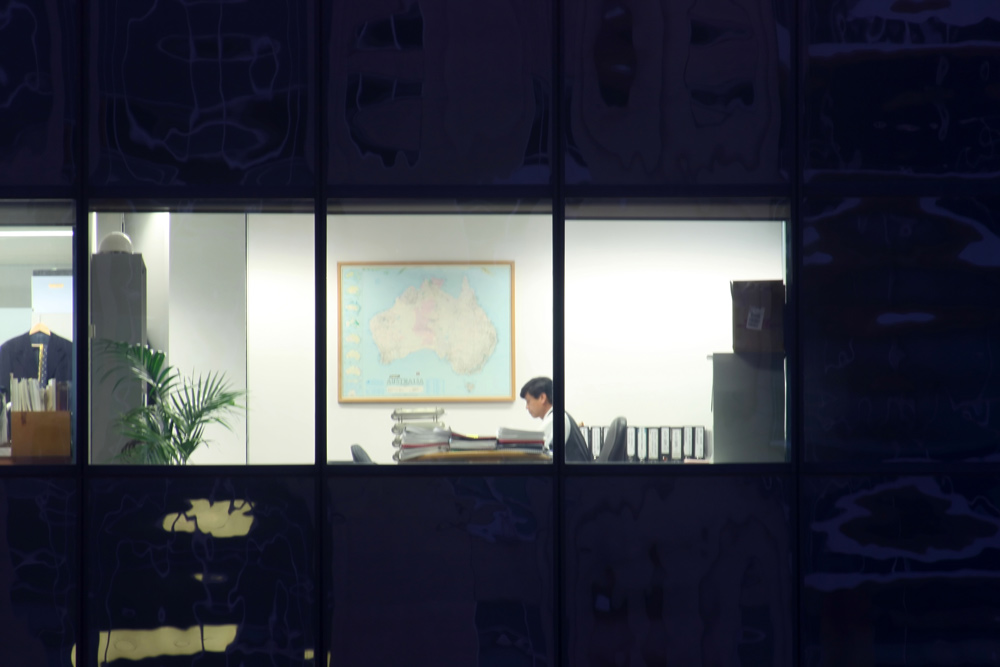
Another sleep disruptor is that your working life gets in the way. Some work night shifts; others have work schedules that can vary widely from week to week. And even with consistent work schedules, you can find yourself working right up until bedtime, or in the middle of the night if you go to bed early, exhausted, and then wake up refreshed at 2 a.m. and ready to roar!
Here are a few solutions to try:
For those working nights, wear sunglasses home from work to minimize the amount of bright sunshine you receive on the way home. Why? Because sunshine shuts down the release of melatonin, which you need to be able to get to sleep more easily and naturally.
If your shift changes all the time, shift your sleep time backward about three days before your new start time and then inch it forward or back by an hour or two every night. And schedule ten to thirty minutes between work and retiring for the night. Engage in a soothing activity during this time (without screens): relaxing instrumental music, light reading.
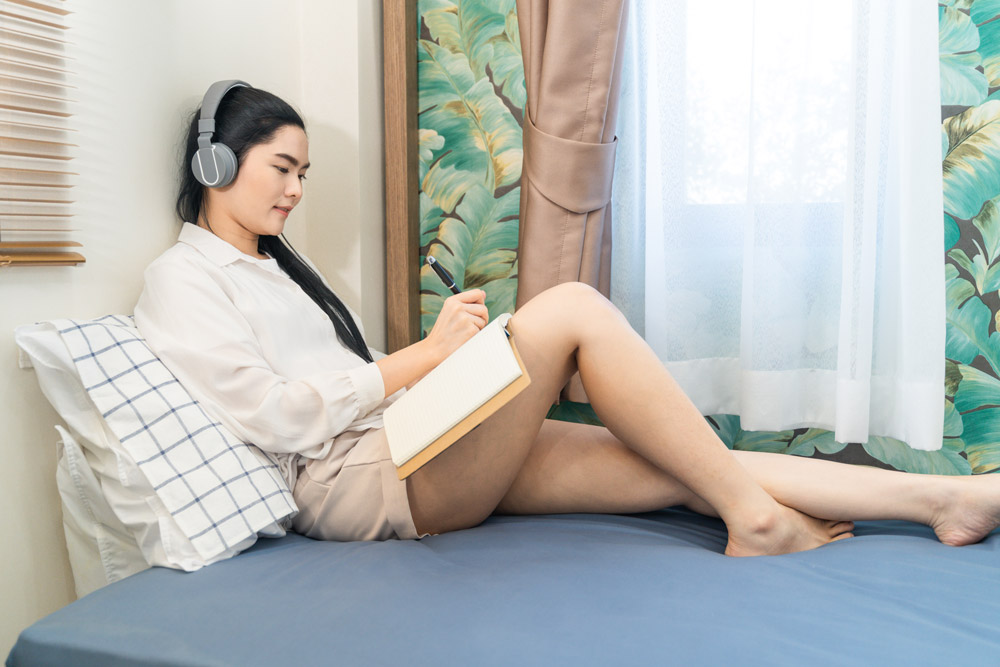
During early midlife — between the age of 35 and 40 — you will still need seven or more hours of shut-eye. And it becomes harder, at this stage of life, to bounce back from experiencing inadequate sleep, so you might find yourself becoming more irritated or apathetic after a bout of insomnia or tossing and turning. Lack of sleep will also prevent you from focusing as adeptly as you would after a well-rested night.
For early midlife adults, the causes mirror earlier (and subsequent) descriptions, and the cures are the same or very similar:
Too stressed to sleep. (Write down what’s bothering you during the day.)
Alcohol consumption. (Avoid it.)
After-NOON caffeine consumption. (If you must drink caffeine, do it before noon.)
Work-related stress. (night shifts, changing schedules, see above suggestions)
Insomnia. (May be genetic. Consult with your team of caregivers, from your primary care physician who can refer you to a psychologist or sleep specialist, to your energy medicine specialist, who can help you with buried trauma that may be making you sleepless.)

When midlife happens (ages 41 to 50) your sleep schedule can get disrupted by family obligations (half-grown and grown children, elderly parents’ needs, and more) so it’s crucial to prioritize the amount and quality of the sleep you do get in order to avoid becoming a casualty of catastrophic sleep deprivation. No one can get used to sleep deprivation. Our bodies need adequate sleep and rest to remain robust. There is no cure for lack of sleep except adequate sleep.
For many women, this is the period of time when menopause begins (and sometimes ends). Menopause can cause hot flashes that drench you in sweat several times a night, waking you up, and it can cause depression or anxiety, both drivers of sleep deprivation. Wearing cooler bedclothes (or none at all) and getting breathable bed sheets can help address the night time disturbances. Those who experience depression and anxiety can benefit from journaling, meditation, enjoyable daily exercise, and/or counseling (cognitive behavioral therapy).
And middle age is the period of life when sleep apnea develops in those who are predisposed to the condition, including those who drink alcohol, people who are obese, and folks with a family history of the condition. Sleep apnea means “sleep without breath.” If you know someone — or if you are someone — who snores, chokes, or gasps for air during the night, or someone who wakes up with headaches and feeling drained and depleted despite having clocked eight or more hours of sleep, you should find out more about sleep apnea because, unaddressed, it can be deadly. In some people, their head and neck muscles relax so much during sleep that their airways become blocked; in others, their brain doesn’t deliver the message that they need to keep breathing. Either way, it’s a dicey condition and should be investigated. There are devices to help sleep apnea patients get safe, restful sleep.
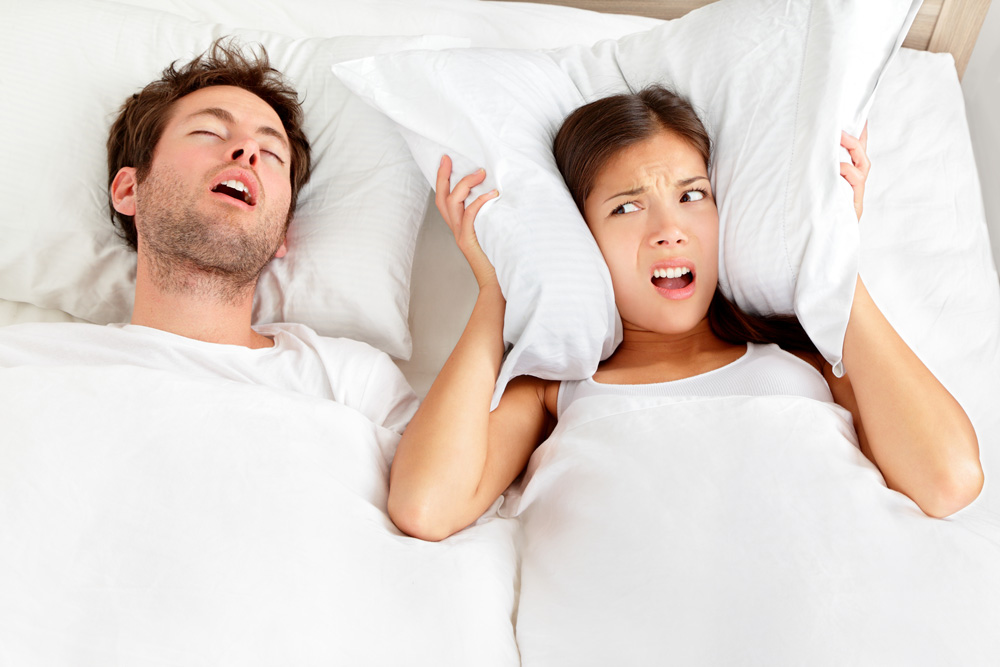
This is also the age group that begins to find itself getting up several times during most nights to use the bathroom. If you’re raising your hand now, try limiting how much water you drink an hour before you retire for the night and do a brief meditation, in bed, until you fall back asleep.
This age group experiences the same causes and cures as those mentioned previously:

Too stressed to sleep. (Write down what’s bothering you during the day.)
Alcohol consumption. (Avoid it.)
After-NOON caffeine consumption. (If you must drink caffeine, do it before noon.)
Work-related stress. (night shifts, changing schedules, see above suggestions)
Insomnia. (see above)
Next on our list are those who are from 51 to 60 years old, the period of life designated Late Midlife. These folks mirror the same conditions and challenges as Early Midlife individuals: sleep apnea, menopause, frequent bathroom visits during the night, alcohol, caffeine, work schedules, etc.
And then comes the retirement years, what many people refer to as the Golden Years, from age 61 to 75.
This intense period of adjustment can throw a massive monkey wrench into those who have always considered that what they do for a living is the main reason they’re alive and valuable to others.
Retirement takes away the structures that so many people have hung their existences on, value-wise. Many people who lose that life-long structure develop insomnia, unable to settle into a new routine that is more about being than doing. Take away their daily routines, and their nighttime routines disappear, too. They begin to flail as they struggle to develop a new way of existing in the world. It can be quite unnerving unless they have practiced it a bit beforehand.

For those who want to remain active (and I hope that’s you), part-time jobs fill the bill. For others, volunteering is an avenue that resonates.
Sleep experts recommend creating a new schedule and listing how you want to spend the day ahead, whether that’s a walk in the park or around the neighborhood first thing in the morning, followed by joining a bridge club, or golfing, playing pickleball or tennis, or whatever else will give you smiles, a sense of belonging, and a reason to want to remain physically and mentally robust. Physical activity helps you fall asleep more readily and to sleep more restfully. But do limit physical exercise (except for sex!) at least one hour before you expect to go to sleep every night.
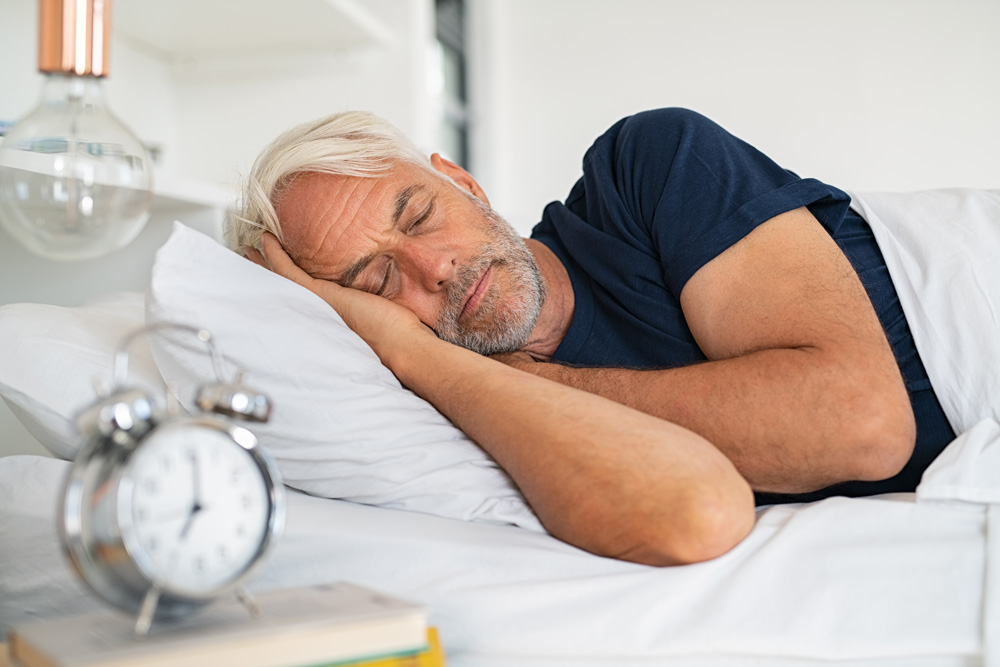
The other sleep-stealers for this group and some of their remedies can be found in the previous age groups: alcohol, caffeine, stress, pre-sleep stimulation via mobile devices and entertainment centers, insomnia, sleep apnea, frequent bathroom visits at night.
For older adults — those 76+ — seven to eight hours of sleep per 24 hours works well. They usually will fall asleep early in the evening, sleep well, and then rise at about 4 or 5 or 6 a.m., feeling fully rested. Of course, those with the aforementioned sleeping challenges may not adhere to this pattern, but a great many do.
The older we get, the earlier we tend to wake up. But those in this age bracket with sleeping challenges should be very careful when taking drugs or supplements for sleep because a great many of them have deleterious side effects that can grievously impact, in addition to increasing the likelihood of a fall.
For most of the above life stages, what follows is my professional advice as an energy healer as it relates to tackling sleep challenges:
- Spend some time early in the morning, outside, exposing your eyes to the dawn’s early light, so your circadian rhythm gets its marching orders for the day.
- Limit your contact with EMFs.
- Exercise before noon.
- Keep fresh air in your bedroom.
- Take magnesium at night.
- Meditate no more than ten minutes after 6:00pm.
- Focus on the peaceful and positive in the evening hours.
A night of good, restful sleep is essential for our wellbeing. It’s necessary to keep mentally, physically, and spiritually healthy. It also provides an incredible opportunity to gain insights and wisdom from beyond this realm.
You see, beyond getting the rest your body needs to be in balance, sleep also offers you the opportunity to tap into the power of lucid dreaming.
And it is one of the skills taught in our bestselling Astral Wisdom course.
Learn to design the life of your dreams by mastering the out-of-body experience by accessing this course here >>

